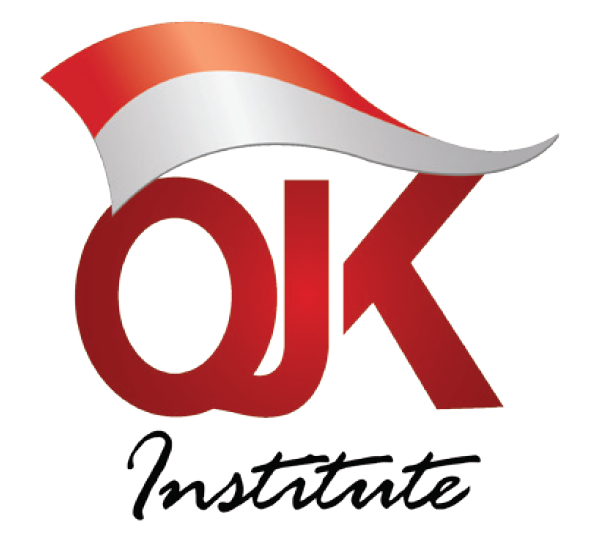Strengthening Islamic Financial Literacy and Inclusion
- 16 Februari 2023
- Lintas Sektor
- Online

Teaser
Background
The share of the Islamic financial market as of June 2022 was recorded at 10.41% and there was an increase compared to the previous year which reached 10%[1]. Even though there is an increase, there is something that needs to be of common concern, namely the still large gap with the conventional financial market share. The low market share of Islamic finance indicates that public interest in Islamic finance is still very low compared to conventional finance. This is in line with the results of the 2022 National Financial Literacy and Inclusion Survey (SNLIK), where the Islamic financial inclusion index has only reached 12.12%, far behind the general financial index which reached 85.10%[2].
The low market share and inclusion index of Islamic finance in Indonesia is certainly a big question mark. This is in view of the fact that Indonesia's Muslim population reaches 237.56 million people (86.7% of the total population) and Indonesia is a country with the largest Muslim population in the world based on a report by The Royal Islamic Strategic Studies Center[3].
Several factors are suspected to be the cause of the low public interest in Islamic financial products and services, including the first, the low level of Islamic financial literacy will only reach 9.14% in 2022. Based on ADB Institute research, financial literacy is an intrinsic factor that influences and motivates people to seek information and act on what they know. It can be concluded that indirectly, an increase in the Islamic financial literacy index will increase the Islamic financial inclusion index, in line with greater public knowledge of financial products and services. The second factor, the innovation and competitiveness of the Islamic financial industry is still inferior to the conventional financial industry. This can be seen from the more limited innovation of Islamic financial products, the more expensive prices of products and services and the office network which is not as wide as the conventional financial industry so that it cannot reach the public, especially in remote areas.
As stated in the Indonesian Sharia Economic Masterplan (MEKSI) 2019-2024, the Government of Indonesia has a vision of becoming the world's leading Islamic economic center[4]. In addition, the Government has also set a financial inclusion target of 90% in 2024. To achieve this, it is deemed necessary to continue efforts to increase the level of Islamic financial literacy and inclusion through increased education and outreach programs to the public, increasing innovation, capability and competitiveness Islamic financial services industry. In addition, it is necessary to consider the existence of policies that can have a direct impact on society and the Islamic financial services industry. As an example of a policy that has been carried out by Malaysia through tax incentives in Islamic banking in the form of exemption from certain taxes, stamp duty and the provision of tax deductions for home credit loans by individuals[5].
To achieve the government's goals and carry out various efforts to increase the market share of Islamic finance in Indonesia, good synergy and cooperation is needed between stakeholders, both the Government through Ministries and related institutions, financial services industry players and educational institutions, the community and other related parties. Therefore, it is necessary to carry out in-depth discussions and discussions to identify strategies and efforts to increase the level of literacy and inclusion in Indonesian sharia finance with expert sources and practitioners in the field of sharia finance.
[1] Ministry of Communication and Information of the Republic of Indonesia. "The Vice President Asks MES to Work Quickly and Compactly". https://www.kominfo.go.id/content/detail/44800/wapres- Minta-mes-kerja-cepat-dan-kompak/0/berita
[2] Financial Services Authority. "Infographic Results of the 2022 National Financial Literacy and Inclusion Survey". https://www.ojk.go.id/id/berita-dan-activity/info-terkini/Pages/Infographics-Survei-Nasional-Literasi-dan-Inclusion-Keuangan-Tahun-2022.aspx
[3] Rizaty, Monavia Ayu. "The Largest Indonesian Muslim Population in the World in 2020". DataIndonesia.id, https://dataindonesia.id/ragam/detail/population-muslim-indonesia-terbesar-di-dunia-pada-2022
[4] Coordinating Ministry for Economic Affairs of the Republic of Indonesia. "Prepare Various Policies and Programs, Indonesia is Ready to Become the Leading Center for Islamic Economics in the World". https://www.ekon.go.id/publikasi/detail/4281/prepare-berbagai-kebijakan-dan-program-indonesia-berprepared-be-Put-Economy-syariah-terkemuka-di-dunia
[5] National Sharia Finance Committee. Academic Study of Tax Arrangements in Islamic Banking. 2019.
Objective
- Providing insight and awareness to the Islamic financial services industry regarding the potential for increasing Islamic financial literacy and inclusion in Indonesia.
- Exploring the strategy of the Islamic financial services industry in an effort to increase literacy in Islamic financial inclusion.
- Increase the role of the Islamic financial services industry and related stakeholders in encouraging the level of Islamic financial literacy and inclusion.
Participant
Speaker
-
Halim Alamsyah (Wakil Ketua Umum IAEI dan Tenaga Ahli Menteri Keuangan Bidang Keuangan dan Keuangan Syariah)
-
Yuli Melati Suryaningrum (Presiden Direktur Utama PT BCA Syariah)
-
Fitri Hartati (Direktur Utama PT Capital Life Syariah)
-
Eko Priyo Pratomo (Presiden Komisaris PT BNI Asset Management)

